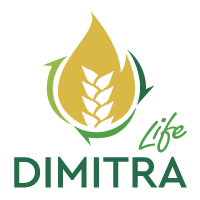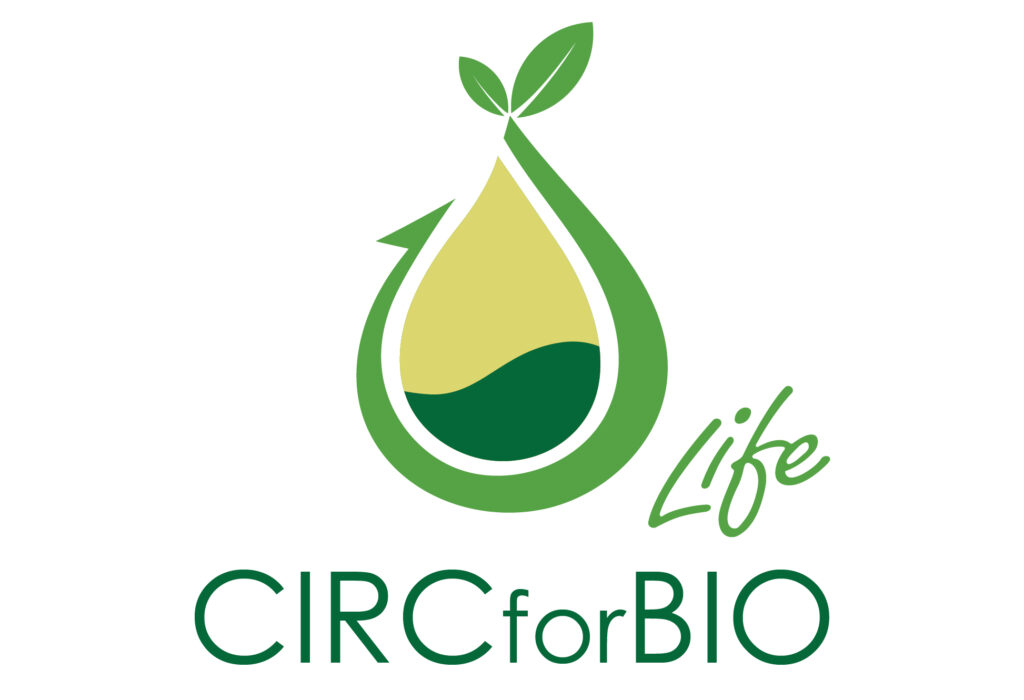
Networking
LIFE DIMITRA is expected to stand as an ambitious and very promising project in promoting climate mitigation in the land sector. It will significantly contribute to the reduction of GHG emissions because raw digestate storage and application on land will be avoided and mineral fertilisers will be substituted by innovative bio-based fertilisers.
LIFE DIMITRA will demonstrate a transformative impact which will contribute to the shift towards a resource-efficient low carbon economy, producing biobased fertilisers advantageous both in circularity and GHG emissions terms.
CONTACT:
info@life-dimitra.eu
The overall aim of the CIRCforBIO project is to achieve high GHG emission savings from the substitution of fossil fuels with advanced biofuels, as well as to promote the realization of the circular economy concept for biomass. This will be achieved through (i) implementing and demonstrating an innovative biorefinery concept to produce bioethanol, and (ii) developing an interactive platform to promote the circular economy for second-generation biomass in Greece.
CONTACT:
info@circforbio.eu
Online Meeting LIFE-DIMITRA & LIFE-AgrOassis
As part of the communication and networking actions of LIFE-AgrOassis, an online meeting was held on May 19, 2025 with the LIFE-DIMITRA team, focused on the exchange of ideas, experiences, and good practices.
The two projects share common goals, particularly in promoting sustainable approaches for the production of bio-fertilisers, establishing pilot composting and bio-fertiliser units, and disseminating knowledge to the agricultural community.
Fostering collaboration between LIFE projects is a key step towards strenghtening the implementation of effective environmental solutions at the European level.
During the meeting, Panagiotis Dalias, Coordinator of LIFE-AgrOassis, presented the project’s objectives, actions, and progress to date. This was followed by a constructive discussion and mutual exchange of insights between participants. Representatives from the Department of Agriculture, KES Research Center, the Mediterranean Agronomic Institute of Chania (MAICh), and Paradeisiotis Ltd also took part in the meeting.
You can find more information about the LIFE-DIMITRA and LIFE-AgrOassis projects on their official websites.
This project creates an ecosystem throughout the entire cereal production chain, demonstrating sustainability and competitiveness in all production stages of the flour, malting and baking industries focused on reaching the high sustainable standards of the market.
In the primary sector, the implementation of best agricultural practices (BAP) in different climatic zones and the use of innovative technologies (e.g. precision agriculture, warning systems, NIR technology) among farmers will aim to increase productivity, with greater efficiency in the use of nutrients, herbicides, fertilizers and mitigating carbon farming practices (i.e higher carbon sequestration in the soil and lower GHG emissions).In the processing industry, standardized model contracts will be created between the different sectors to ensure a consistent supply to the European market of cereal products that comply with food security standards.
As a result, a low-carbon emission cereals certification system will be created together with an “Innocereal EU” sustainability label that will identify sustainably produced bread, pasta, malt, and beer in the market. LIFE Innocereal EU works at all levels of the food chain for digital and sustainable production, mitigating GHGs, and ensuring accurate traceability and a balanced distribution of wealth.
CONTACT:
comunicacion@lifeinnocereal.eu
Meeting with LIFE-InnoCereal & LIFE-AgrOassis
LIFE-OLIVER - OLIve tree for Verified Emission Reduction generation project aims to develop and certify an international standard that allows olive oil producers to access the carbon credit market, enabling olive farms to sell their carbon certificates obtained through the adoption of specific agronomic practices. The project is coordinated by the University of Perugia and is funded under the European Union’s LIFE Programme, with the participation of 11 partners from Italy, Spain, and Greece.
The project has the ambition to have a substantial impact on the Greenhouse Gas (GHG) balance of the Mediterranean olive crop, considering that this crop covers about 5 million hectares in the EU and that therefore an improvement in the GHG balance of this crop would have a significant overall impact. To support this purpose, LIFE-OLIVER aims to develop a financial incentive based on the sale of carbon credits, resulting from the adoption of a carbon farming approach in olive grove management, on the voluntary carbon credit market.
CONTACT:
Email: lifeoliver2023@gmail.com
Meeting LIFE OLIVER & LIFE-AgrOassis
As part of its outreach and knowledge-sharing activities, LIFE-AgrOassis hosted, on Thursday 24 July 2025, an online networking meeting with the teams of LIFE OLIVER and LIFE ResLand.
LIFE OLIVER is developing an international standard system that allows olive oil producers to access the carbon credit market. The project is coordinated by the University of Perugia, with the participation of 11 partners from Italy, Spain, and Greece.
During the meeting, each project shared its goals and key actions. The session offered an opportunity for open exchange, new connections, and the discovery of shared opportunities. The participating teams will continue to follow each other’s progress and explore opportunities for future collaboration.
Learn more about LIFE OLIVER: here
The purpose of the LIFE-ResLand – Adapt and Promote a Resilient and Firewise Living Landscape project is to promote a resilient landscape, adapted to climate change, implemented in the Cascais area of the Sintra-Cascais Natural Park, Portugal. The initiative coordinated by Cascais Ambiente is one of the Portuguese projects receiving support from the European Commission’s LIFE Program, co-financed at 60%. With a budget of around 3.8 million euros, LIFE ResLand has ICNF – Instituto da Conservação da Natureza e das Florestas (Institute for Nature and Forest Conservation) and Civil Protection as partners. The project will run for six years and is scheduled to end in September 2029. It aims to be a model that can be replicated both nationally and internationally, and an example of good practice.
CONTACT:
Meeting LIFE ResLand & LIFE-AgrOassis
As part of its outreach and knowledge-sharing activities, LIFE-AgrOassis hosted, on Thursday 24 July 2025, an online networking meeting with the teams of LIFE OLIVER and LIFE ResLand.
LIFE ResLand, implemented in the Cascais area of the Sintra-Cascais Natural Park, Portugal, focuses on promoting a resilient landscape, adapted to climate change.
During the meeting, each project shared its goals and key actions. The session offered an opportunity for open exchange, new connections, and the discovery of shared opportunities. The participating teams will continue to follow each other’s progress and explore opportunities for future collaboration.
Learn more about LIFE ResLand: here




